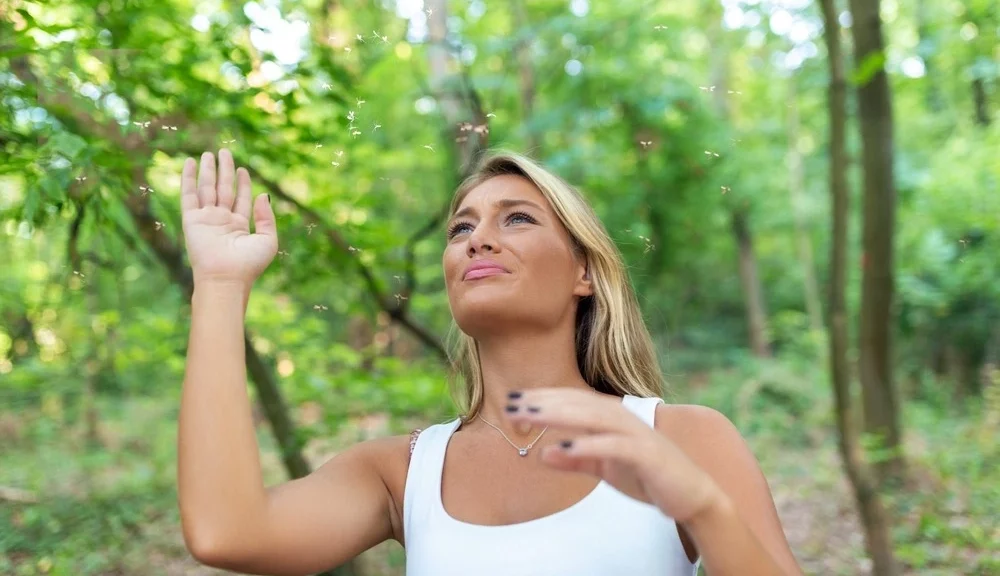
Mosquito Joe explains why mosquitoes buzz in people's ears and how to prevent it.
|
Is there something buzzing around your ear? It could be a mosquito!
These small, flying insects are known for causing itchy bites and transmitting diseases. They can also cause annoying buzzing that could ruin your next barbeque or nightly walk.
Why do mosquitos buzz in people’s ears anyway? Turns out that there are some scientific reasons behind this annoying little buzzer!
What Are The Buzzing Sound Mosquitoes Make?
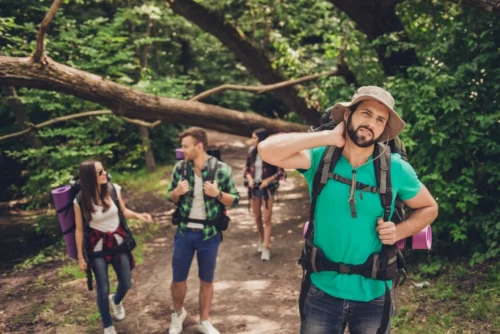
Typically, mosquitos beat their wings between 300 to 600 times per second. That noise you hear? It’s the rapid vibration of their beating wings!
The noise doesn’t just get stuck in your ears. It also helps mosquitoes identify potential mates. Different species and sexes of mosquitos create unique buzzing frequencies, which can be used to find their perfect mate in a noisy environment!
Both female and male mosquitoes create the iconic buzz of a mosquito, but females actually create a higher-pitched sound than males. While it’s possible to hear the buzz of a male mosquito, most humans never do. This is because male mosquitoes feed off nectar and plants, so they don’t zero in on humans in the same ways as their female counterparts. That means that male mosquitoes are also not a threat to your defenseless skin!
What Attracts Mosquitoes to Certain People?
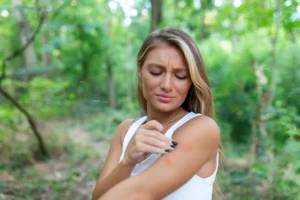
Different factors can influence a mosquito's preference and make you more or less attractive to them. The more appealing you are to them, the more likely they are to find you.
Mosquitoes are especially drawn to:
- Body Odor and Chemical Signals: They love the smell of sweat and lactic acid on human skin. The specific combination of chemicals each person emits can change whether mosquitoes are attracted to you.
- Carbon Dioxide (CO2): People who exhale more CO2 may be more attractive to mosquitoes, which is why you may notice more bites when exercising outside.
- Body Heat: Mosquitoes use thermal sensors to detect warmth from bodies, which helps them locate potential hosts.
- Blood Type: Some studies suggest that individuals with Type O blood are more prone to mosquito bites than those with other blood types.
- Dark Clothing: Surprisingly, wearing dark colors can make you a mosquito magnet. These insects use vision and smell and are more attracted to darker shades.
Probably the most interesting of the points above is the fact that research has found that people with type O blood are more attracted to mosquitoes than other blood types.
These vital fluid suckers can tell what type of blood most people have because 85% of humans produce a secretion that reveals which blood type they are. Mosquitoes can speak that “language” and predict whether a person has their favorite blood type. Fascinating, right?
Understanding these factors can help individuals become more mindful of their habits and surroundings, reducing their attractiveness to mosquitoes.
Why Do Mosquitoes Buzz in People’s Ears?

Mosquitoes are attracted to the scent of carbon dioxide (CO2) that we release from our mouths and noses. Since this is near our ears, it makes sense that we can hear the buzzing. They aren’t trying to annoy us. It’s just the sound of a mosquito searching for its next meal!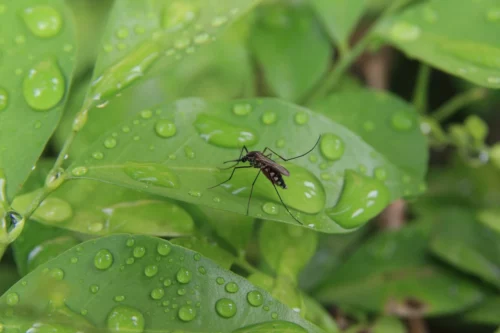
How to Keep Mosquitoes Away
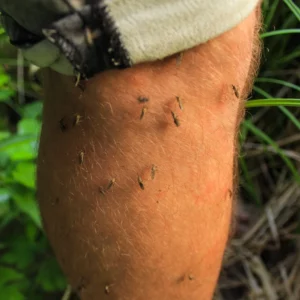
While mosquitoes buzzing in your ear can be quite annoying, letting them take over your yard and ruining your outdoor fun is unacceptable. Taking these steps can help prevent annoying mosquitoes from ruining your outdoor fun.
- Use mosquito repellent – An effective mosquito repellent contains DEET, picaridin, or oil of lemon eucalyptus. Apply repellent to exposed skin.
- Wear protective clothing – Cover up as much as possible when spending time outdoors in mosquito-prone areas. Wear light-colored clothing instead of dark colors. Reduce exposed skin with long pants, long-sleeved shirts, and socks.
- Use mosquito nets – When sleeping or resting in mosquito-infested areas, consider using mosquito netting above your resting area. This creates a physical barrier that prevents mosquitoes from reaching you.
- Eliminate standing water – Don’t camp next to a lake or slow-moving stream. Remove standing water in your yard, such as from bird baths or flower pots. Female mosquitoes lay their eggs in standing water.
- Avoid peak mosquito times – Stay indoors at dawn and dusk to avoid mosquitoes. This is the time of day when female mosquitoes are most active, searching for their blood meal so they can produce their eggs.
- Consider mosquito control – If you live in an area with a high mosquito population, consider mosquito-control measures such as those offered by your local Mosquito Joe®. Our services can help you find the best solution to make mosquito bites a thing of the past!
Mosquito Control Solutions by Mosquito Joe

No one knows your area like your local Mosquito Joe! Our experts’ professional approach combines expert knowledge with advanced technology to provide long-lasting mosquito control, offering homeowners peace of mind, free from the buzzing nuisances of mosquitoes.
You can rest assured that calling Mosquito Joe is your best bet because all our visits are backed by the Neighborly Done Right Promise™ and the Mosquito Joe Satisfaction Guarantee. If you aren’t satisfied with our services, we aren’t either!
Learn how to keep mosquitos away and make mosquito buzzing a thing of the past. Call your local Mosquito Joe for a free estimate today!
This article is intended for general guidance only and may not be applicable to every situation. You are responsible for determining the proper course of action for your property and your situation. Mosquito Joe is not responsible for any damages that occur as a result of any advice or guidance derived from blog content. For the most accurate guidance, contact an independently owned and operated Mosquito Joe for more information and a professional on-site assessment.
